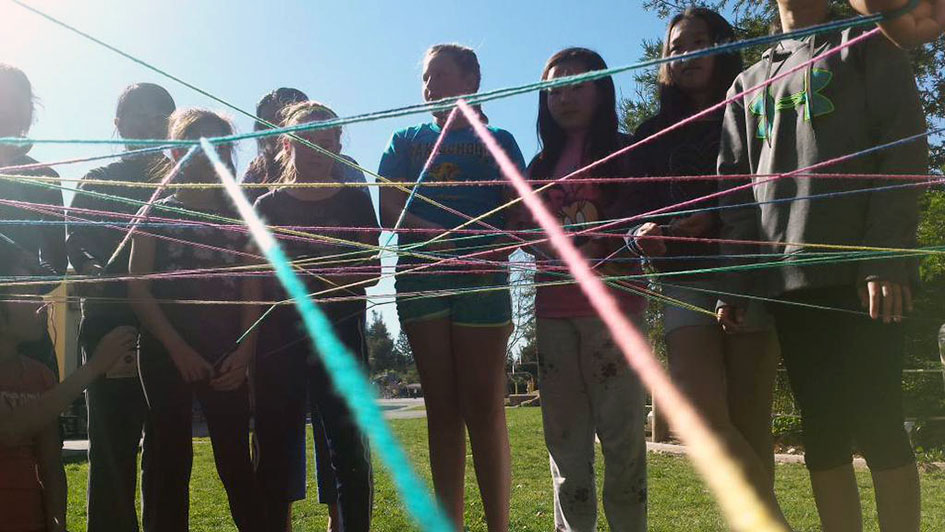
Teachers, have you ever thought about how using theater techniques could help bolster your regular classroom lessons? Our artist educators are in the classroom nearly every day of the school year, working with teachers and students to inspire both a love of theater AND a love of learning through the use of acting exercises and drama activities. Using these skills not only helps students perfect their public speaking and performance abilities, but can also impact their understanding of core subjects such as math, social studies, reading and more.
The Education.com blog explored a few ways that theater exercises could be used in the classroom – most specifically, the improv techniques that are a part of so many of our typical theater activities. Teacher Alyssa Gallagher found new ways of connecting with her students when she introduced improv as a way to bolster creative thinking and working as a collaborative team.
Gallagher focused first on the Tenets of Improv, which usually include some of the following:
- Just show up!
- Everything is an offer.
- Say yes, and…
- Build on the ideas of others.
- Don’t block.
- Listen.
- Be fully present.
- Don’t think too much.
- Detach from the outcome.
Gallagher says, “These principles bring out the best in your students during a collaborative working session. They’re essential for every type of creative work, since creativity flows best when we give ourselves the freedom to explore and play. In practice, the Tenets of Improv are really about creating a new mindset. By nurturing this improvisor’s mindset, both teachers and students learn to become better collaborators and work successfully on team projects.”
Gallagher goes on to highlight several improv activities she did with students that were particularly successful. You can read about these activities here.
In closing, she says:
Over time, all of these exercises help students become more comfortable with building on each other’s ideas, collaborating, and viewing team projects through the lens of the group as a whole. Students may initially be reluctant to engage, but over time they’ll feel more comfortable with the practice and begin to see the benefits of this teamwork. These games all focus on spontaneity and iteration, which can help balance the predictable and repetitive aspects of education.